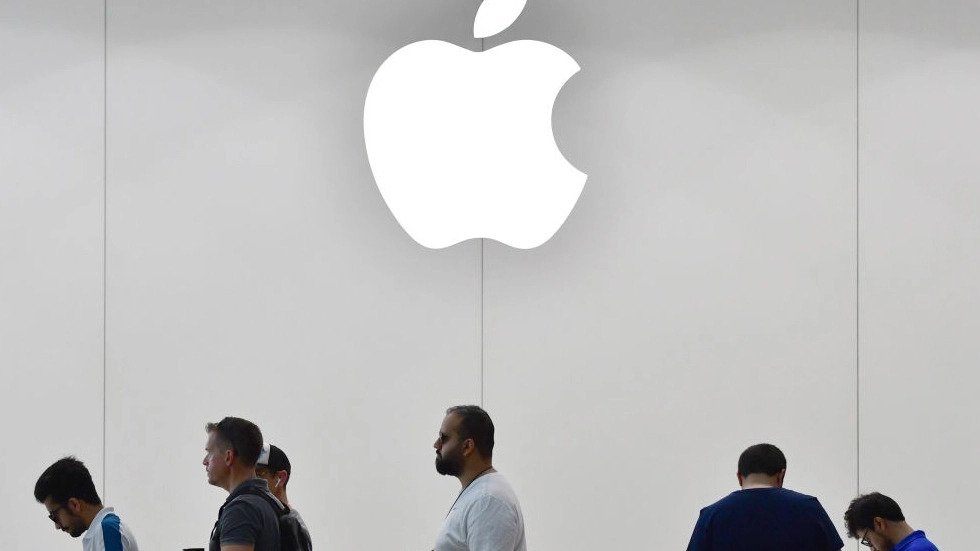Photo Credit: The Hill
How privacy concerns point to bigger issues surrounding our tech
Elizabeth Xu, Contributor
In late January, tech megacorporation Apple was hit with a fourth class action lawsuit over concerns regarding user privacy violations. Many Apple users have voiced concern about the company collecting sensitive personal information through its apps, with or without consent of the user. Whether or not the iPhone Analytics privacy setting was turned off, people have been alleging Apple of recording, tracking, and monetizing analytical data collected from activity linked to the user’s iPhone. This includes anything from the time spent interacting with apps, browsing history, to app store searches and downloads. The severity of these accusations has even amounted to claims that Apple has violated state criminal laws and the fourth amendment, which protects user’s privacy rights. The suit demands monetary restitution, but has yet to be on trial.
Apple has done little to defend itself against the recent privacy violation allegations, holding fast to claims that they do not sell user data to third parties or connect user data to their own advertising platforms. In its Analytics privacy policy, recently updated following privacy accusations, Apple stated that user data was simply used to improve its products and services. However, many concerns have arisen in the fact that it is still unclear how exactly Apple uses collected user data.
Possible evidence of Apple’s usage of user data has recently been reported by Mysk, an app development company that discovered that the user data sent back to Apple through Apple apps such as Apple Music, Books, Stocks, News, and the App Store included personal information linked to an ID number known as the Directory Services Identifier (DSID), which is tied to private user data such as their iCloud account, name, phone number, home address, and email address. Regardless of whether users chose to disable the sharing of Device Analytics, their personal and identifiable data were sent back to Apple, contradictory to the company’s privacy policy that claims that data was collected anonymously. From here, it is clear that the growing number of lawsuits against Apple may stem from the lack of transparency in Apple’s management and communication of private user data.
However, even if Apple did collect personalized data, the law may not side with Apple’s many outraged customers, according to attorneys responsible for the case. They state that the filers of the suit may have a hard time winning the case without a clear understanding of the privacy violations by Apple if it involves server-wide collection by third parties like Youtube and Instagram, many of which collect personal data involved in the privacy suit. Furthermore, many users may have already consented to personalized data collection while agreeing to the terms and conditions for an Apple product or service. In fact, if users agreed to the terms and conditions of Apple products or services, the settings that “Allow Apps to Request to Track” or “Share Analytics,” they may not not be able to claim a privacy violation. Therefore, there must be evidence that Apple has collected personalized data without the consent of the user for Apple to be criminally responsible. If the company collects personalized user data without consent, it may not be illegal if collected anonymously. Apple cannot be criminally responsible for data collection of anonymized personal data due to the crucial role data collection plays towards the server’s quality of products and services. Without personalized data, paid services such as Apple Books, TV, and Store would not be able to authenticate purchases.
Consequently, it may be very difficult to say whether Apple’s data is an invasion of Apple user privacy without information on whether the Apple users have already agreed to sharing personalized data, or whether that data was collected anonymously. While it may be true that Apple’s management of data is questionable, the fact that other companies may also be tracking personal information cannot be overlooked. For example, Google records your search and browsing information, which can give large amounts of information about everything from your gender and age, to your profession, school, and interests. Google may even collect sensitive data from your location and apps such as Gmail, Youtube, or Google Photos, which makes good data to sell to third parties for targeted advertising. Users should be concerned about Apple’s usage of personal information, but this suit really draws attention to a larger problem of privacy and big data collected by companies.
Until more strict laws for user privacy protection are introduced, not only should Apple users expect personalized data collection, but any user of a product or service that collects personal information should expect it. The area of data collection and privacy is very problematic in that it is constantly developing with inadequate laws regulating this lucrative industry, allowing many unlawful corporate behaviours to go unnoticed. The Apple privacy lawsuits draw attention to a larger problem of privacy law shortcomings which must be addressed by lawmakers if users really wish to have their privacy respected in the future.




